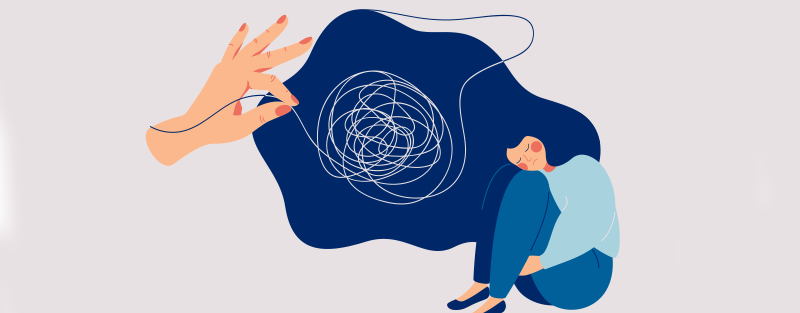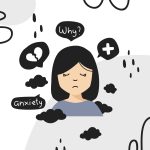1. Definition: Depression, officially known as major depressive disorder or clinical depression, is a prevalent yet serious mood disorder that significantly affects how individuals feel, think, and manage daily activities. For a diagnosis of depression, symptoms must persist for at least two weeks.
2. Prevalence: Depression affects individuals across all demographic boundaries, including all ages, races, ethnicities, and genders. Typically manifesting in adulthood, depression is more frequently diagnosed in women, though it significantly impacts men as well.
3. Risk Factors: Several factors contribute to the onset of depression, including genetic, biological, environmental, and psychological elements. Key risk factors include:
- A personal or familial history of depression.
- Experiencing major life changes, enduring trauma, or significant stress.
- Other chronic medical conditions such as diabetes, cancer, or heart disease that can exacerbate depressive symptoms.
4. Signs and Symptoms: Depression manifests through various symptoms, which include:
- Constant feelings of sadness, anxiety, or emptiness.
- Persistent hopelessness, pessimism, irritability, and feelings of worthlessness.
- Loss of interest in previously enjoyable activities.
- Significant weight loss or gain and changes in appetite.
- Sleep disturbances, including insomnia or excessive sleeping.
- Physical symptoms without a clear cause, such as pain or digestive issues, that do not respond to treatment.
5. Treatment: Depression is treatable with a variety of approaches that are tailored to the individual’s needs. The treatment plan may include one or more of the following:
Psychotherapy:
- Cognitive-behavioral therapy (CBT): This therapy is effective in treating depression by helping individuals identify and change negative thinking and behavior patterns that contribute to their depression.
- Interpersonal therapy (IPT): IPT focuses on improving personal relationships that may be contributing to the individual’s depression.
Medications:
- Selective Serotonin Reuptake Inhibitors (SSRIs): Common SSRIs include fluoxetine (Prozac), sertraline (Zoloft), and citalopram (Celexa).
- Serotonin and Norepinephrine Reuptake Inhibitors (SNRIs): Examples include venlafaxine (Effexor) and duloxetine (Cymbalta).
- Tricyclic Antidepressants (TCAs): Such as amitriptyline (Elavil), these are older drugs that might be used when newer medications do not work.
- Monoamine Oxidase Inhibitors (MAOIs): Including selegiline (Emsam), which are typically reserved for cases that do not respond to other treatments due to their potential side effects and dietary restrictions.
Brain Stimulation Therapies:
- Electroconvulsive Therapy (ECT): This medical treatment is most commonly reserved for patients with severe major depression who have not responded to other treatments. It involves brief electrical stimulation of the brain while the patient is under anesthesia.
- Repetitive Transcranial Magnetic Stimulation (rTMS): This involves using a magnet to target and stimulate certain areas of the brain.
- Vagus Nerve Stimulation (VNS): This treatment involves a device implanted in the chest that sends electrical pulses to the brain through the vagus nerve.
These treatments can be highly effective, particularly when tailored to the individual’s specific symptoms and circumstances. It’s crucial for patients to work closely with their healthcare providers to determine the most appropriate treatment strategy.
Further Reading and Resources:
- National Institute of Mental Health (NIMH) – Depression Overview
- NIMH – Statistics on Depression
- NIMH – Signs and Symptoms of Depression
- NIMH – Treatment Methods for Depression



